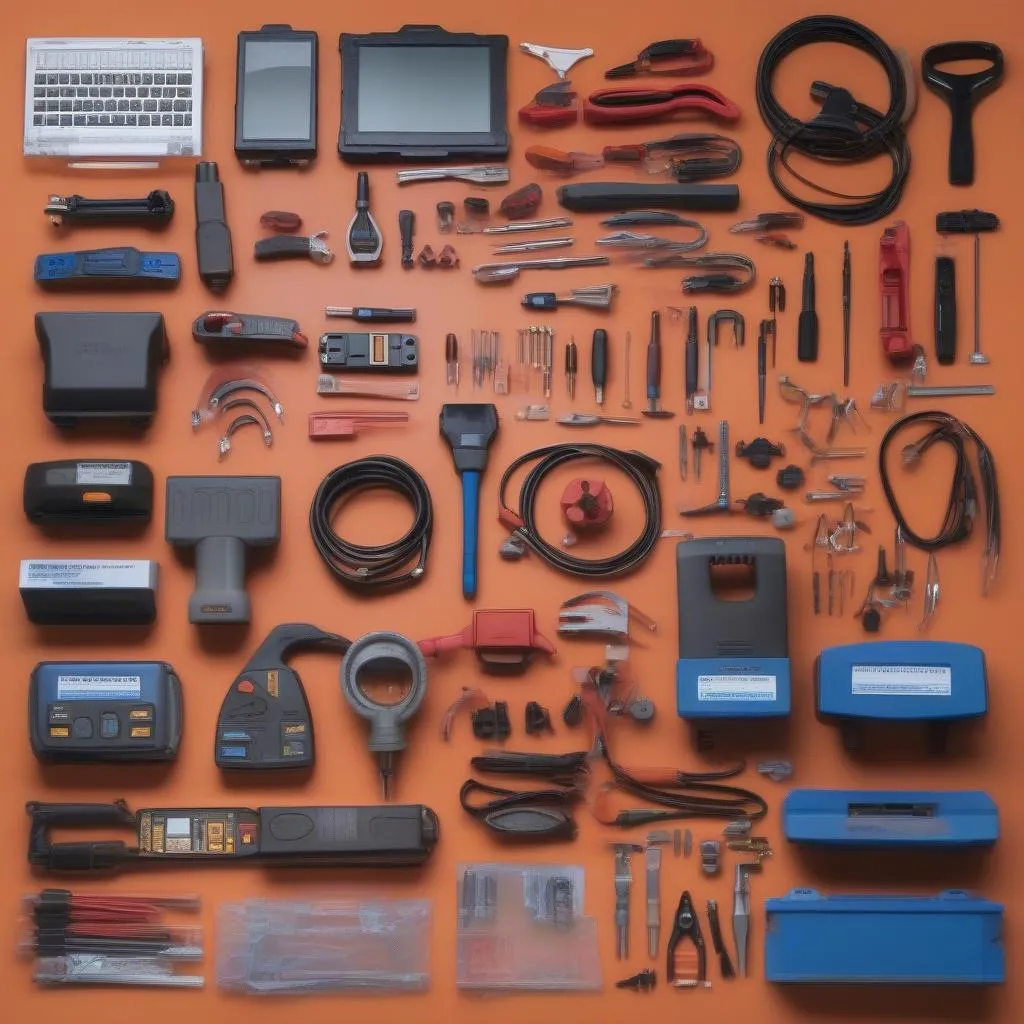Imagine this: you’re a mechanic, and you’re trying to diagnose a problem with a client’s BMW. You’ve got the right tools, you’ve got the right knowledge, but you can’t seem to get the car to communicate with your diagnostic tool. You’re frustrated, the client is frustrated, and you’re losing valuable time. Sound familiar?
This is a common scenario for mechanics who work on European cars. European vehicles are known for their complex electronics and sophisticated engine management systems, which can make diagnosing problems a real challenge. This is where scan tools come in. They can help you read codes, monitor live data, and even reprogram certain modules, giving you the information you need to quickly and efficiently diagnose and repair problems.
But with so many different types of scan tools available, choosing the right one can be overwhelming. This guide will help you understand the different types of scan tools available and how to choose the right one for your needs.
Understanding the Purpose of Scan Tools
Scan tools are essential for any mechanic working on modern cars, especially European vehicles. They allow you to:
- Read diagnostic trouble codes (DTCs): These codes provide valuable information about potential problems in the vehicle’s systems.
- Monitor live data streams: This data can help you identify problems that might not be triggering a DTC.
- Clear DTCs: After you’ve repaired the problem, you can clear the DTCs from the vehicle’s memory.
- Perform basic programming: Some scan tools can reprogram certain vehicle modules, such as the key fob or the tire pressure monitoring system.
Types of Scan Tools
Generic Scan Tools
Generic scan tools are the most affordable type of scan tool and are designed to work with a wide range of vehicles. They can read and clear DTCs, but they usually don’t have the advanced features of specialized scan tools. These tools are typically suitable for basic diagnostics and maintenance tasks, but they may not be able to provide the detailed information you need to diagnose complex problems.
Example: A generic OBD2 scan tool can access the basic engine and transmission data for most vehicles manufactured after 1996.
Specialized Scan Tools
Specialized scan tools are designed to work with specific makes and models of vehicles. They often have more advanced features, such as live data monitoring, advanced programming capabilities, and more extensive DTC library. These tools are ideal for professional mechanics who work on a specific brand or model of vehicle.
Example: A “Dealer Scanner” for BMWs will allow you to access more in-depth information about the car’s systems than a generic OBD2 scanner, such as the brake control system, air suspension, and other manufacturer-specific modules.
OEM Scan Tools
OEM scan tools are the most advanced type of scan tool. They are designed and developed by the car manufacturer themselves. These tools provide the most comprehensive diagnostics and programming capabilities and are typically used by authorized dealerships and technicians.
Example: A scan tool manufactured by Mercedes-Benz will provide the most comprehensive information about Mercedes vehicles and will be the most reliable tool for programming and resetting specific modules in these vehicles.
Choosing the Right Scan Tool
When choosing a scan tool, there are several factors to consider:
- Vehicle Make and Model: The scan tool needs to be compatible with the specific make and model of the vehicle you’ll be working on.
- Features: Consider the features you need, such as live data monitoring, advanced programming capabilities, and more extensive DTC libraries.
- Price: Scan tools can range in price from a few hundred dollars to several thousand dollars.
- Ease of Use: The scan tool should be easy to use and navigate.
- Support: Make sure the manufacturer provides adequate support and documentation.
Frequently Asked Questions
Q: What are some good scan tools for European cars?
A: There are many good scan tools available for European cars. Some popular brands include Autel, Launch, and Snap-on. For specific recommendations, it’s best to consult with a mechanic or an automotive professional familiar with European vehicles.
Q: What are some of the common challenges encountered when diagnosing European cars?
A: European vehicles are known for their complex electronics and sophisticated engine management systems. This can lead to challenges such as:
- Complex DTCs: The codes generated by European vehicles can be more difficult to interpret than those generated by other vehicles.
- Access to specific modules: Accessing certain modules may require specialized knowledge and tools.
- Programming procedures: Programming and resetting specific modules may require specific procedures and tools.
Conclusion
Choosing the right scan tool for your needs can make a world of difference in your ability to diagnose and repair European vehicles. By understanding the different types of scan tools available and considering the factors mentioned above, you can find a tool that will help you work efficiently and effectively.
If you’re unsure about which scan tool is right for you, contact us for a consultation and we’ll be happy to help you find the perfect solution for your needs.
Remember, a good scan tool can be a valuable investment for any mechanic working on European vehicles.
 Scan Tool for European Cars
Scan Tool for European Cars
 European Car Repair Shop
European Car Repair Shop
 Diagnostic Tools for European Vehicles
Diagnostic Tools for European Vehicles


